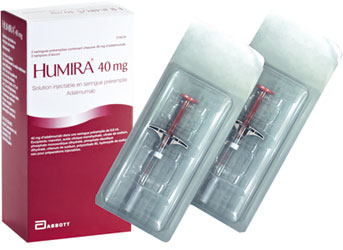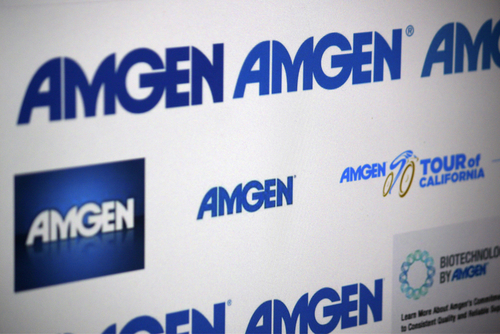 Amgen has announced encouraging results from a Phase 3 study designed to assess its biosimilar candidate ABP 501 in patients who suffer from moderate to severe rheumatoid arthritis. The research was designed to evaluate the efficacy and safety of the drug in comparison with commonly-prescribed Humira (adalimumab), consistent with its primary and key secondary endpoints.
Amgen has announced encouraging results from a Phase 3 study designed to assess its biosimilar candidate ABP 501 in patients who suffer from moderate to severe rheumatoid arthritis. The research was designed to evaluate the efficacy and safety of the drug in comparison with commonly-prescribed Humira (adalimumab), consistent with its primary and key secondary endpoints.
ABP 501 is an anti-TNF-α monoclonal antibody that is currently undergoing intensive clinical testing for approval as a biosimilar candidate to adalimumab. The therapy had already been approved to treat inflammatory diseases, such as rheumatoid arthritis, plaque psoriasis, polyarticular juvenile idiopathic arthritis, psoriatic arthritis, ankylosing spondylitis, Crohn’s disease and ulcerative colitis in several countries.
The company is now working towards approval in the U.S., and is conducting this phase 3 study with a primary endpoint based on a comparison of patient outcomes using ACR20 measurements, achieving 20% or more improvement in ACR assessment at the 24th week. ACR20 was reported in the prespecified margin for ABP 501 when compared to adalimumab, revealing its clinical equivalence.
In addition, the researchers concluded that both ABP 501’s safety and immunogenicity were similar to adalimumab, while the key secondary endpoints included ACR50, ACR70 and DAS 28-CRP. “The positive results from Amgen’s biosimilar phase 3 rheumatoid arthritis study showed clinical equivalence in efficacy, and comparable safety and immunogenicity, to adalimumab,” said the executive vice president of Research and Development at Amgen, Sean E. Harper, MD.
“Amgen’s success on both our ABP 501 psoriasis and rheumatoid arthritis studies underscores our expertise in the research and development of high-quality biologic therapies. Inflammation remains a core therapeutic area for Amgen, and we are committed to leveraging our long-term heritage in the space to deliver a portfolio of biosimilar and novel compounds that benefit patients worldwide,” added Harper.
The study was randomized, double-blind, and active-controlled, conducted in order to assess the safety, efficacy and immunogenicity of ABP 501 compared to adalimumab. It included 526 adult patients with moderate-to-severe rheumatoid arthritis who have had an inadequate response to methotrexate (MTX), were treated for 22 weeks, screened for four weeks, and followed for 26 weeks.
The participants were randomly divided into two groups: one of the groups (n=264) was treated with subcutaneous ABP 501 in 40 mg doses every two weeks, while the other group, with 262 patients, was treated with 40 mg SC adalimumab every two weeks. The company, which is currently developing nine other biosimilar molecules, has also announced that it is planning to launch five of these biosimilars between 2017 and 2019.
A biosimilar is a biological product created to be very similar to a reference medicinal product, which needs to fulfill the requirements of the U.S. Food and Drug Administration (FDA), European Medicines Agency, and CDSCO. In January, Zydus Cadila launched the world’s first biosimilar of adalimumab, which is the largest selling therapy in the world. This event increases the possibility that up to 12 million people with autoimmune disorders in India will have access to the treatment.


